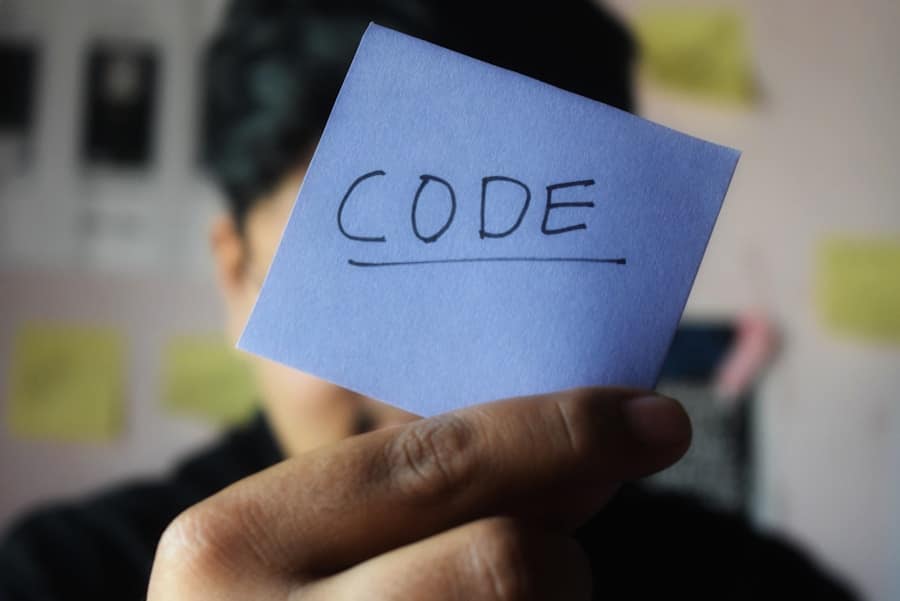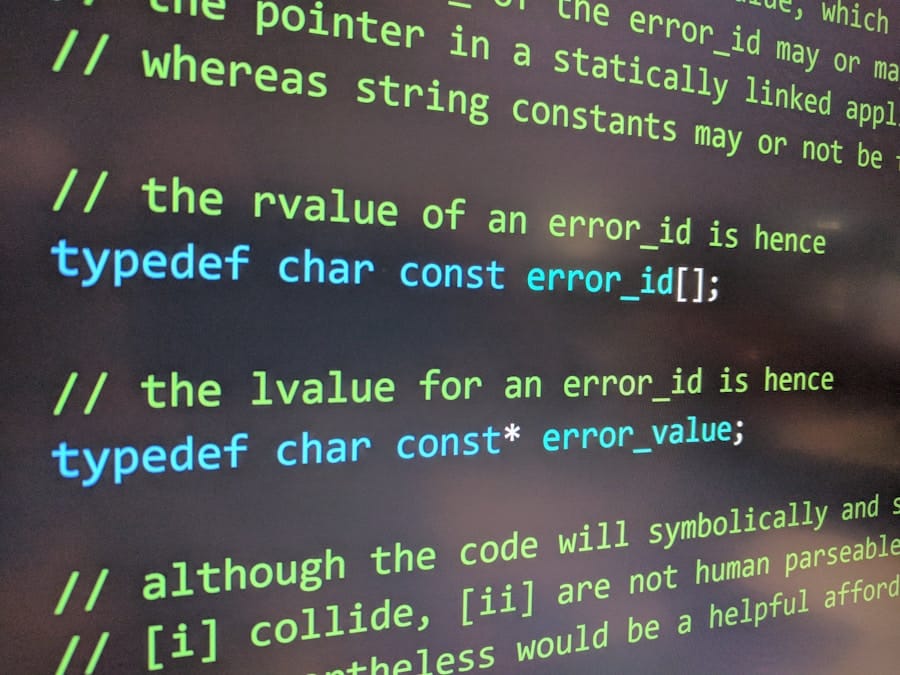Code Quality Assurance (CQA) is a critical aspect of software development that ensures the reliability, maintainability, and performance of code. As software systems grow in complexity, the need for robust quality assurance practices becomes increasingly paramount. CQA encompasses a variety of processes and methodologies aimed at identifying defects, ensuring adherence to coding standards, and validating that the software meets its intended requirements.
The significance of CQA cannot be overstated; it directly impacts user satisfaction, system performance, and the overall success of software projects. In the contemporary landscape of software development, where rapid deployment cycles and agile methodologies dominate, maintaining high code quality presents unique challenges. Developers are often under pressure to deliver features quickly, which can lead to shortcuts in coding practices and insufficient testing.
This environment necessitates a comprehensive approach to CQA that not only identifies issues but also fosters a culture of quality within development teams.
Key Takeaways
- Code quality assurance is essential for ensuring the reliability and maintainability of software applications.
- Manual code quality assurance is time-consuming, prone to human error, and often unable to keep up with the pace of modern software development.
- AI is revolutionizing code quality assurance by automating repetitive tasks, identifying potential issues, and improving overall code quality.
- AI automates code quality assurance by using techniques such as static code analysis, machine learning, and natural language processing to analyze and improve code.
- The benefits of AI in code quality assurance include increased efficiency, improved accuracy, and the ability to identify and fix potential issues before they become major problems.
- The future of AI in code quality assurance is promising, with continued advancements in AI technology and its integration into software development processes.
- Implementing AI in code quality assurance requires careful planning, training, and integration with existing development workflows to maximize its benefits.
- In conclusion, AI is having a significant impact on code quality assurance, improving the overall quality and reliability of software applications.
The Challenges of Manual Code Quality Assurance
Manual code quality assurance, while foundational in many development environments, is fraught with challenges that can hinder its effectiveness. One of the primary issues is the inherent subjectivity involved in manual reviews. Different reviewers may have varying interpretations of coding standards and best practices, leading to inconsistencies in feedback and potential oversights.
This subjectivity can result in critical bugs slipping through the cracks or unnecessary rework due to conflicting opinions on code quality. Additionally, the time-consuming nature of manual code reviews can significantly slow down the development process. As projects scale and the volume of code increases, the burden on developers and reviewers grows.
This often leads to rushed reviews or even the abandonment of thorough checks altogether, particularly in fast-paced environments where deadlines loom large. The reliance on human effort also introduces variability; fatigue, distractions, and differing levels of expertise among team members can all impact the quality of manual reviews. Consequently, organizations may find themselves grappling with a trade-off between speed and thoroughness, ultimately compromising the integrity of their software.
The Rise of AI in Code Quality Assurance

In recent years, artificial intelligence (AI) has emerged as a transformative force in various industries, including software development. The integration of AI into code quality assurance processes represents a significant shift from traditional methods. AI technologies, particularly machine learning algorithms, have the potential to analyze vast amounts of code data quickly and accurately, identifying patterns and anomalies that may elude human reviewers.
This capability not only enhances the efficiency of CQA but also elevates the overall quality of software products. The rise of AI in CQA is driven by several factors, including the increasing complexity of software systems and the growing demand for rapid delivery cycles. As organizations adopt agile methodologies and DevOps practices, there is a pressing need for tools that can keep pace with the speed of development while ensuring high-quality outputs.
AI-powered solutions can automate repetitive tasks, such as code reviews and testing, allowing developers to focus on more strategic aspects of their work. Furthermore, AI can provide insights based on historical data, enabling teams to make informed decisions about coding practices and potential areas for improvement.
How AI Automates Code Quality Assurance
AI automates code quality assurance through various techniques that streamline processes and enhance accuracy. One prominent method is static code analysis, where AI algorithms analyze source code without executing it to identify potential vulnerabilities, coding standard violations, and other issues. These tools can scan entire codebases in a fraction of the time it would take a human reviewer, providing immediate feedback to developers.
For instance, tools like SonarQube leverage AI to detect code smells—suboptimal coding practices that may not necessarily be bugs but can lead to maintainability issues down the line. Another area where AI excels is in automated testing. Traditional testing methods often require extensive manual effort to create test cases and execute them.
AI-driven testing frameworks can generate test cases based on code changes or user behavior patterns, significantly reducing the time required for testing cycles. For example, tools like Test.ai utilize machine learning to create tests that adapt as the application evolves, ensuring comprehensive coverage without the need for constant human intervention. This automation not only accelerates the testing process but also enhances its reliability by minimizing human error.
The Benefits of AI in Code Quality Assurance
The integration of AI into code quality assurance offers numerous benefits that extend beyond mere efficiency gains. One of the most significant advantages is improved accuracy in identifying defects and vulnerabilities.
This heightened accuracy translates into more reliable software products and a decrease in post-release issues. Moreover, AI enhances collaboration within development teams by providing consistent feedback across different projects and team members. With AI-driven tools standardizing code reviews and testing processes, developers receive uniform guidance on best practices and coding standards.
This consistency fosters a culture of quality within teams, as everyone adheres to the same benchmarks for excellence. Additionally, by automating routine tasks, AI allows developers to allocate more time to creative problem-solving and innovation—activities that are crucial for driving software projects forward.
The Future of AI in Code Quality Assurance

Advanced Machine Learning Models
One potential direction is the increased sophistication of machine learning models that can learn from past coding behaviors and adapt their recommendations accordingly. These models could analyze not only static code but also dynamic behavior during runtime, providing insights into performance bottlenecks or security vulnerabilities that may arise under specific conditions.
Managing Complexity in Microservices Architectures
Furthermore, as organizations increasingly adopt microservices architectures and cloud-native applications, AI will play a pivotal role in managing the complexity associated with these systems. The ability to monitor and assess multiple services simultaneously will require advanced AI capabilities that can correlate data across various components and provide actionable insights in real-time.
Proactive Quality Assurance
This evolution will enable teams to proactively address quality issues before they escalate into significant problems.
Implementing AI in Code Quality Assurance
Implementing AI in code quality assurance involves several strategic steps that organizations must consider to maximize its effectiveness. First and foremost is selecting the right tools that align with existing workflows and development practices. Organizations should evaluate various AI-powered CQA tools based on their specific needs—whether it’s static analysis, automated testing, or continuous integration capabilities—and ensure they integrate seamlessly with current development environments.
Training is another critical aspect of successful implementation. Developers must be equipped with the knowledge and skills to leverage AI tools effectively. This may involve workshops or training sessions focused on understanding how AI algorithms function and how to interpret their outputs meaningfully.
Additionally, fostering a culture that embraces AI as an enhancement rather than a replacement for human expertise is essential for smooth adoption. Finally, organizations should establish metrics to evaluate the impact of AI on their CQA processes continually. By tracking key performance indicators such as defect rates, time spent on reviews, and overall software quality post-release, teams can assess whether their investment in AI is yielding tangible benefits.
This data-driven approach will enable organizations to refine their strategies over time and ensure they are maximizing the potential of AI in their quality assurance efforts.
The Impact of AI on Code Quality Assurance
The impact of artificial intelligence on code quality assurance is profound and multifaceted. By automating routine tasks and enhancing accuracy in defect detection, AI empowers development teams to produce higher-quality software at an accelerated pace. As organizations navigate an increasingly complex software landscape, embracing AI-driven CQA practices will be essential for maintaining competitive advantage.
The future promises even greater advancements as machine learning models become more sophisticated and capable of addressing emerging challenges in software development. By implementing AI thoughtfully and strategically within their CQA processes, organizations can not only improve their current practices but also position themselves for success in an ever-evolving technological landscape. The integration of AI into CQA represents not just a trend but a fundamental shift towards smarter, more efficient software development practices that prioritize quality without sacrificing speed.
In a recent article on NeuronWriter SEO NLP Optimization, the importance of utilizing advanced technologies to enhance content creation and optimization is discussed. This article delves into how AI can be leveraged to boost the quality and effectiveness of written content, similar to how AI is being used in automating code quality assurance. Both articles highlight the significant role that artificial intelligence plays in streamlining processes and improving outcomes in various industries.
FAQs
What is AI?
AI, or artificial intelligence, refers to the simulation of human intelligence processes by machines, especially computer systems. These processes include learning, reasoning, and self-correction.
What is code quality assurance?
Code quality assurance is the process of ensuring that software code meets certain quality standards, such as readability, maintainability, and efficiency. This is important for the overall performance and reliability of the software.
How does AI automate code quality assurance?
AI can automate code quality assurance by using machine learning algorithms to analyze and identify patterns in code, detect potential issues, and suggest improvements. This can help developers identify and fix issues more efficiently.
What are the benefits of using AI for code quality assurance?
Using AI for code quality assurance can help improve the overall quality of software code, reduce the time and effort required for manual code reviews, and identify potential issues early in the development process.
Are there any limitations to using AI for code quality assurance?
While AI can be a powerful tool for automating code quality assurance, it is not without limitations. AI algorithms may not always be able to accurately identify complex or nuanced issues in code, and human oversight is still necessary to ensure the best results.

